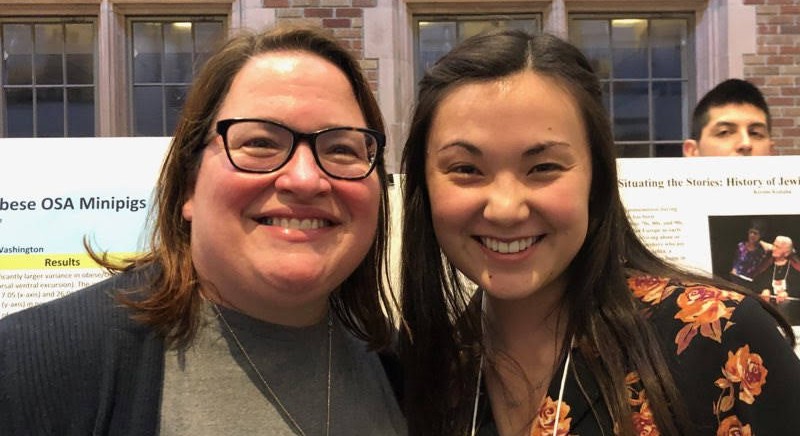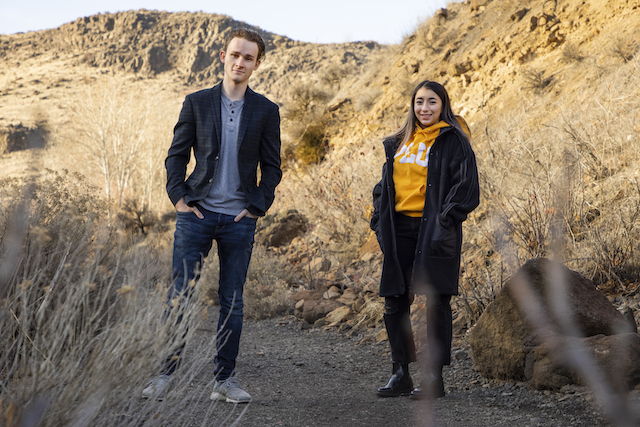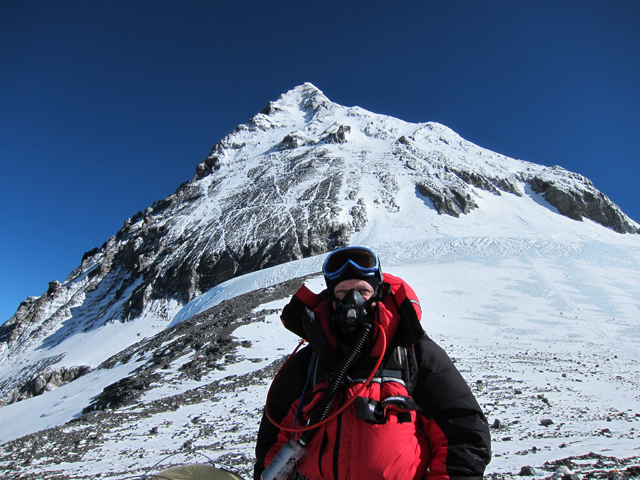Page 257 • (3,683 results in 0.047 seconds)
-

wanted to support the sciences.“George sort of felt like he owed his success and his career to PLU,” said Lauralee Hagen, senior director of advancement. “He was very nostalgic about professors and his here and really wanted to do something to give back.” Hagen worked with the Longs to secure an endowment fund that supports two to three student internships in the natural sciences each summer, as well as an annual lecture. This is the second year that the George and Helen Long Science, Technology and
-
February 28, 2011 Caring course work Anna McCracken ’14 is preparing to hand out prepackaged salad in the bottom level of Food Connections – one of the services housed in the Catholic Community Services building by St. Leo’s Catholic Church in Hilltop Tacoma. Beside her other volunteers are distributing canned food, produce, bread and other items. As a line of people coming for food file through, a man stops at McCracken’s spot. He asks, “What’s this?” “It’s salad,” McCracken says, a global
-
, they would politely excuse themselves and troll for business capital elsewhere. The look of disappointment that I wasn’t a judge was plain on Austin Vu’s face. But he was polite and took time, once he realized potential venture capitalists were all tied up at the moment, to explain his product and his company. Formally known at “Company J,” it was selling a universal technology to link remotes, mp3 players and cell phones. The Inglemoor High School junior explained his business and what he hoped to
-

Professor Rona Kaufman in 2019 to track Jewish migration to Uruguay. In January, Professor Kaufman traveled with Hispanic Studies professor Giovanna Urdangarain and Hispanic Studies major Riley Dolan to collect stories of Jewish migration from residents of the Hogar Israelita, a nursing home in Montevideo. Kishaba was not able to join that trip, but used her knowledge of the Spanish language to help translate texts describing the immigration policies that affected migratory patterns and reinforced
-

across the nation, and PLU is no exception to the trend. In a 2017 survey entitled “Healthy Minds,” one in five PLU students reported experiencing food insecurity ranging from “once in a while” to “sometimes.” Four percent of students indicated they go hungry “a lot” or “all of the time.”These staggering statistics, along with a rising number of students sharing food insecurity concerns with PLU faculty, alerted campus leaders to the need for a response to this growing trend. These efforts led to the
-
April 18, 2008 A banner year for Q Club callers A plucky team of student callers has set another record in dollars raised for PLU through telephone solicitation. The 10 students and three student supervisors, known as TelALutes, spend evenings throughout the year calling thousands of alumni, parents and friends of the university asking for support of Q Club scholarships. The program helps keep constituents connected to campus through personal contact and is remarkably effective in securing
-

business course (BUSA201) focuses on business in the global environment. Other courses include global perspectives in the curriculum, so the benefit of business education at PLU is the global perspective is not just a course, it is a foundation included in many of the courses and across the concentrations.While we have the four concentrations (i.e., marketing, management, accounting and finance), we also have a specialized concentration where a student can propose an area of study that is customized to
-

populations in Washington.The grant, from the federal Health Resources & Services Administration (HRSA), will strengthen training partnerships between the university and healthcare practices in those communities. And it will help train graduates in the use of telehealth, a growing area of modern healthcare that employs computer and video technology to connect patients and practitioners virtually.“We are trying to grow the nurse-practitioner workforce so that they can practice in multiple settings,” said
-

shooting skits was intimidating to him at first. “I didn’t know if I could do it or not until I sat in my room and opened up my laptop,” he said. “My first two years (at PLU) gave me the confidence that I could do this if I really worked at it. I think, yes, I’ve always wanted to do it, but I hadn’t had the confidence until I had some time in college to just experiment and take the opportunity.” Much like Temple, Gutierrez didn’t have PLU on her radar until she began the process of looking for a
-

view across a never-ending traverse, but rather the uplifting feeling of completion. “You know with almost every mountain I’ve climbed there’s a certain point when you start getting close, it’s hard to explain, but you know you are going to make it,” Nelson said. “It’s kind of a strange experience,” he said. “There are no excuses. I’ve eliminated my excuses. Then you look around and go ‘what’s next?’” Last May, Nelson summited Mt. Everest. He has now summited the highest peaks on five of the seven
Do you have any feedback for us? If so, feel free to use our Feedback Form.


